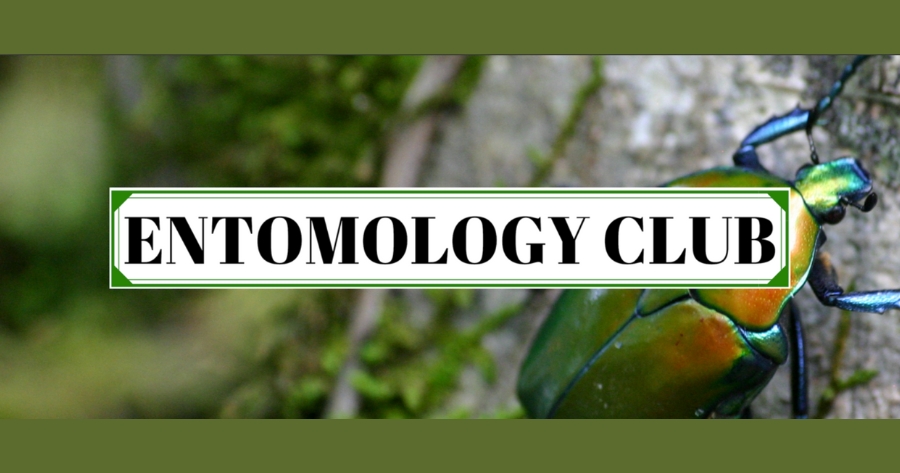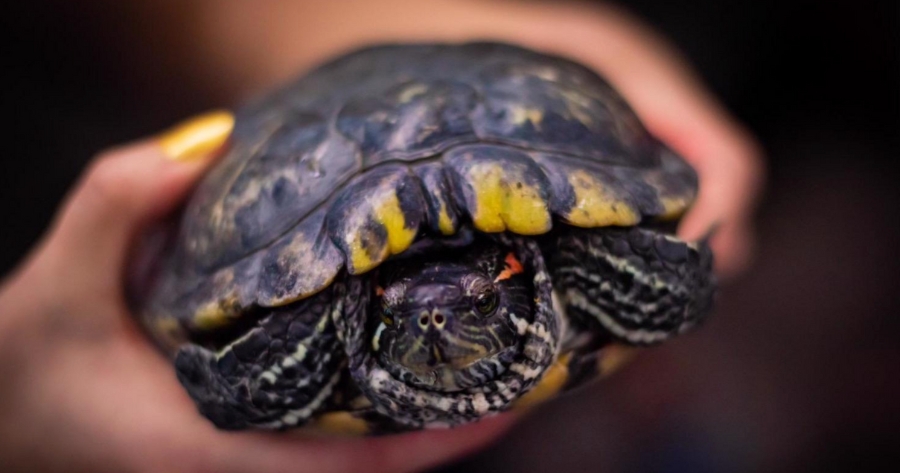
Insect Ecology and Conservation Major
Major in insect ecology and conservation at the University of Delaware: youtube.com/watch?v=LSAPUFaFrHE
Why insect ecology and conservation?
Do you appreciate the tiny creatures that others overlook? The field of entomology is quickly becoming one of appreciation instead of management, and there is a lot to appreciate! Insects provide many beneficial services. Insects, namely bees, pollinate more than 90 percent of flowering plants. Many insects, such as carrion and dung beetles, are part of nature’s clean-up crew, breaking down waste and adding nutrients to the soil. Without insects, ecosystems would collapse; they are an essential component of food webs. Insects shape our daily lives in many ways and also inspire us with their efficiency.
When you major in insect ecology and conservation, you will study the most abundant creatures on Earth—insects—and their interactions with other wildlife, humans, and the environment.
Although insects are abundant, many are experiencing habitat loss and degradation. Our passionate and curious students study how to conserve ecosystems and reduce harm caused by insects. With our ecology-based curriculum, you will receive hands-on instruction in the lab and in the field.
Uniqueness
The University of Delaware boasts the only insect ecology and conservation undergraduate major in the nation! UD has the only department that couples insect and wildlife ecology and conservation providing a holistic program that provides our graduates with a more diverse set of professional skills and career options. With our unique focus on ecology and conservation, we celebrate the benefits and importance of insects.
We are dedicated to providing our students with research experience through internships and fellowships. Every summer, our faculty recruits students to help with their research, and our department offers an undergraduate fellowship for summer research. Students can also choose to pursue a senior thesis, where they will design a research project and defend it in front of a faculty committee.
A faculty advisor will advise you throughout your academic career, which allows us to get to know each student and become a powerful reference and advocate. Our dedicated faculty work closely with our students on study-abroad trips, in-class field trips, and local research opportunities, and all of our hands-on labs are led by faculty.
Our 350-acre campus includes working farms, a botanic garden, an apiary, an insect zoo, the University of Delaware Insect Research Collection, and the U.S. Department of Agriculture’s Beneficial Insects Introduction Research Unit, where many of our undergraduate students work.
In our program, you are part of a tight-knit community. Our students are leaders in a variety of clubs, including the beekeeping club, the entomology club, and Blue Hen Birding.
Outcomes
Our graduates are prepared to enter the workforce with a holistic ecosystem level view of our precious landscape. UD prepares students important jobs such as field biologists, pest control operators or agricultural entomologists working towards sustainable solutions in the areas of integrated pest management, biological control, urban entomology, forensic entomology, pollination ecology, insect conservation or environmental education — just to name a few. Many of our students pursue graduate education in entomology in fields like insect ecology, insect conservation or insect taxonomy.
Career paths
There are many diverse and exciting careers for our developing entomologists. As an entomologist, you will play a unique yet essential role in stewarding this crucial group of organisms. As a field entomologist, you could preserve old-growth forests working for the U.S. Forest Service. Medical entomology is a huge field focused on One Health solutions. The study of insect-borne pathogens in the ecosystem and the dynamics between the host and the vector are more important than ever as we adapt to climate change.
Industry is looking for greener and safer methods of pest control. They hire entomologists to maintain insect zoos and develop new and more efficacious methods of pest control to safeguard the world’s food crops. Government agencies like the U.S. Department of Agriculture, U.S. Geological Survey, U.S. Forest Service and the Animal and Plant Health Inspection Service hire entomologists to curate museum insect collections, develop policies to protect beneficial insects, manage urban pest insects and discover solutions to protect our natural resources from invasive insects, just to name a few. In academia, our graduates find opportunities in research, teaching and Cooperative Extension as they translate scientific information to land managers, students and the public.
For more information, visit the UD Online Catalog.
This sample shows just one possible pathway to earning a bachelor of science degree in Insect Ecology and Conservation in four years. This plan does not replace the advice of your advisor.
Course highlights
Learn about pollination and how plants and insects co-evolved. Students will be involved in planting different flowering species on the farm, and learn about pollination ecology by observing honey bee colonies at the University of Delaware apiary.
Visit local streams while identifying insects at the family level to understand water quality and the importance of insects as bio-indicators. This is a practical conservation approach to learning aquatic insects and their importance in aquatic habitats.
Understand how insects interact in the environment, their position in the food web, and how energy flows within the ecosystem. You'll survey why environmental interactions determine terrestrial ecosystem diversity and function; and strategies for sustaining productive insect communities.
In this hands-on course, students work beehives at the University of Delaware Apiary and learn the art and science of beekeeping.
Incorporating art with insect and wildlife themes, students will learn how to communicate scientific concepts to the public.
Learn how to identify and sustainably manage insect pests for crop production and human health.
Instructors teach the foundational methods and techniques used in entomological research such as DNA extraction and analysis and various collection methods.
Study how insects operate, learning about behavior and physiology. Students examine morphological and physiological adaptations of insects from an evolutionary perspective. Coursework includes the functional anatomy of insects (both internal and external) and how organ systems carry out their physiological tasks.
Related student organizations

APPLY NOW
Associate Director, CANR Undergraduate Recruitment


